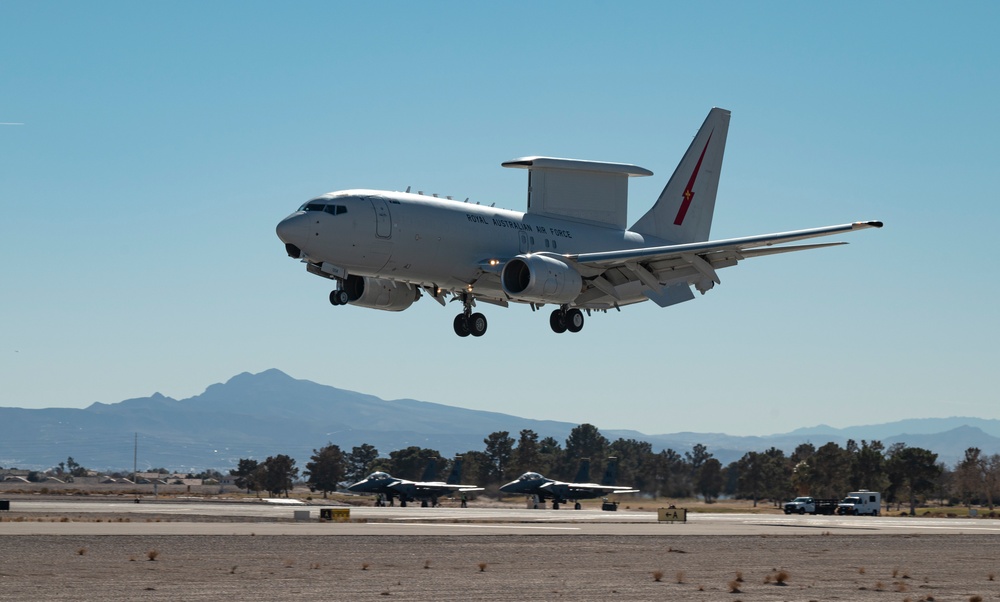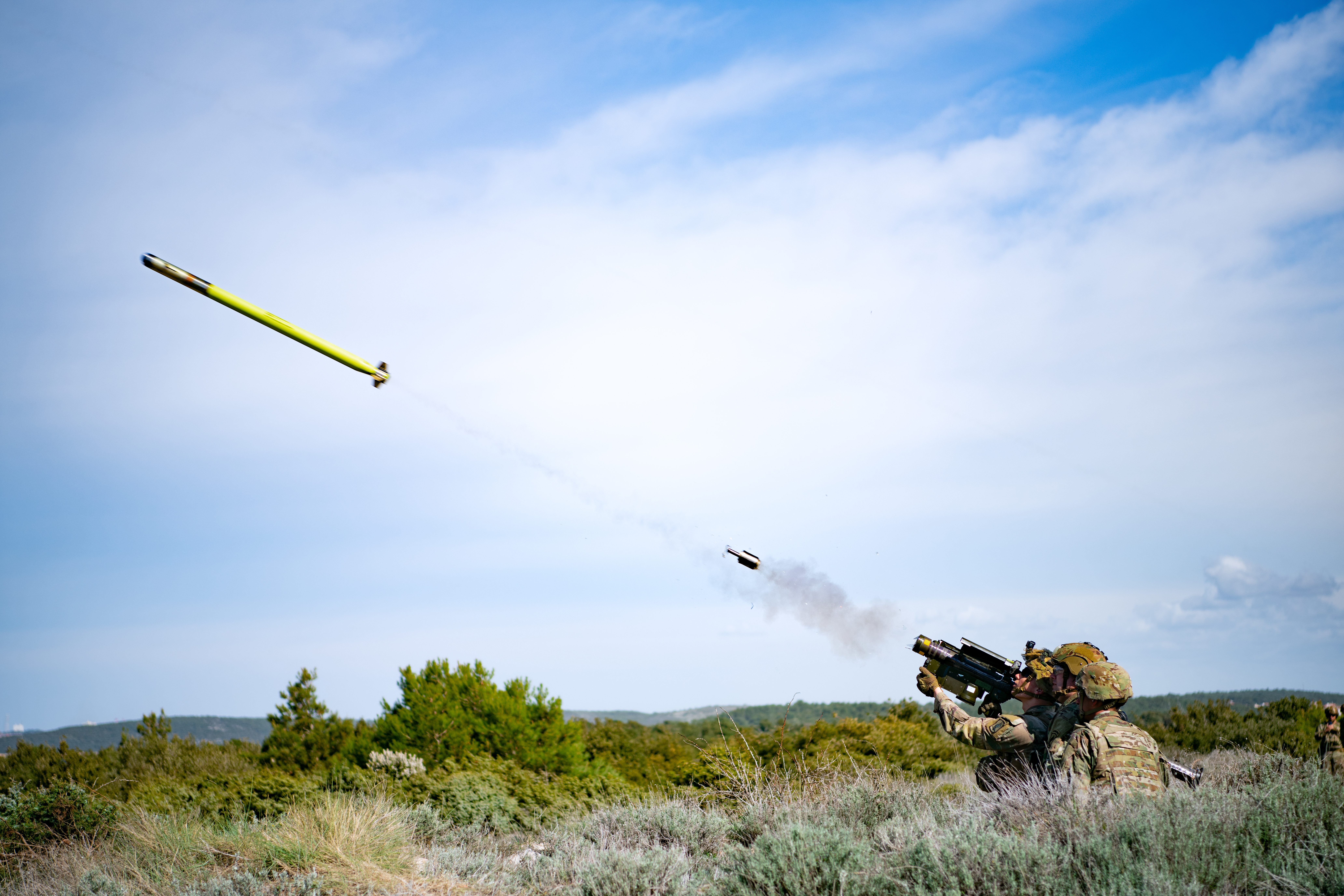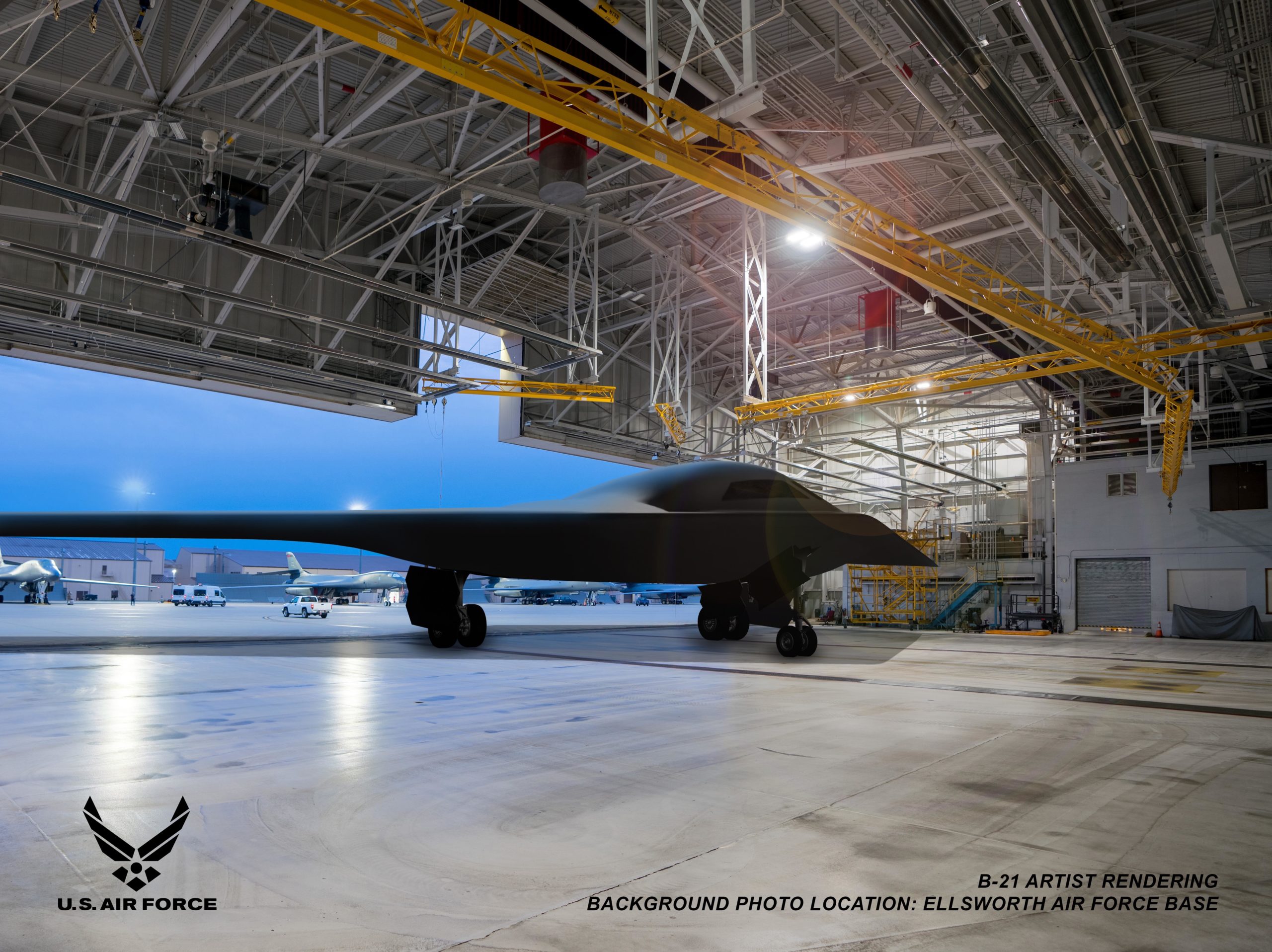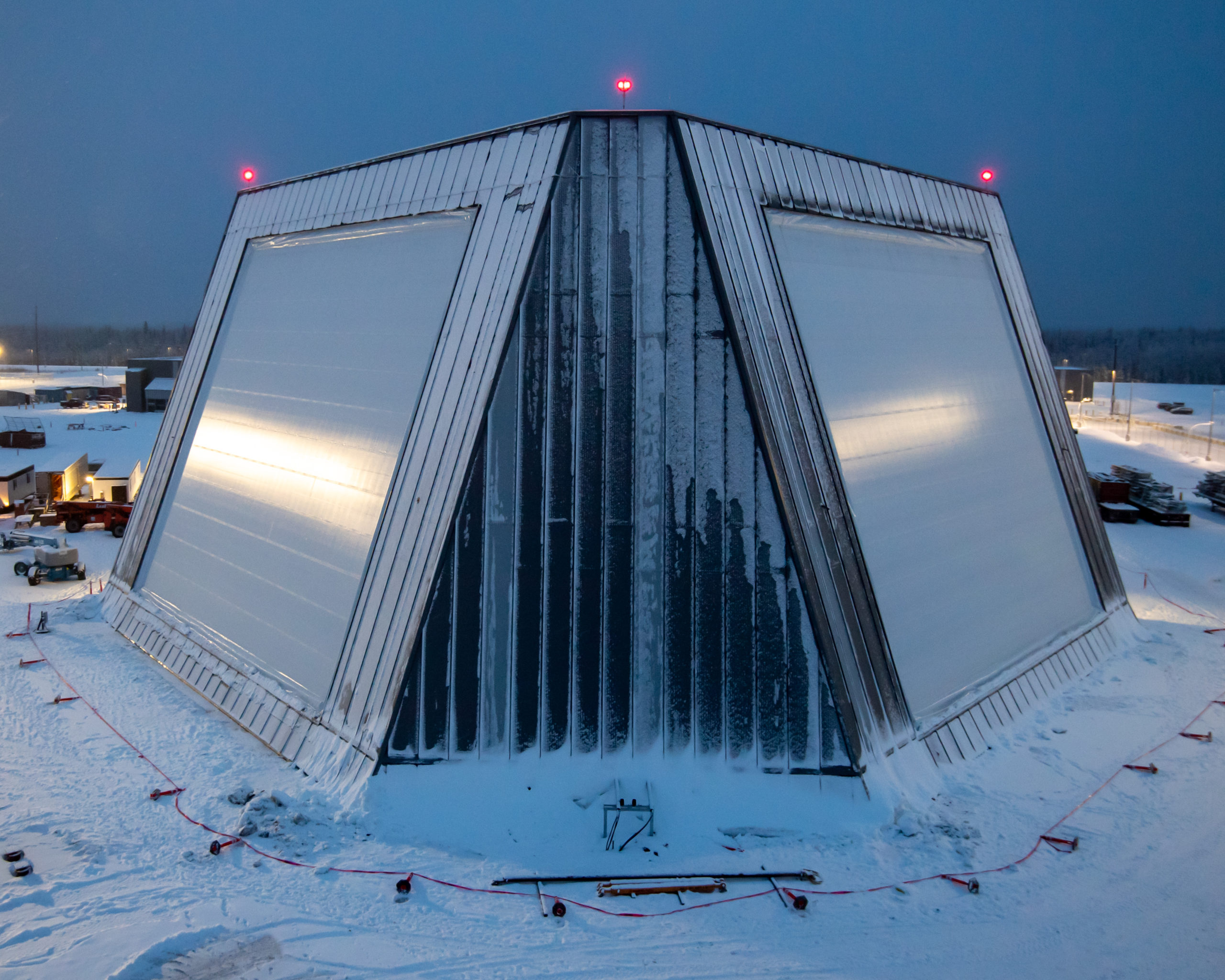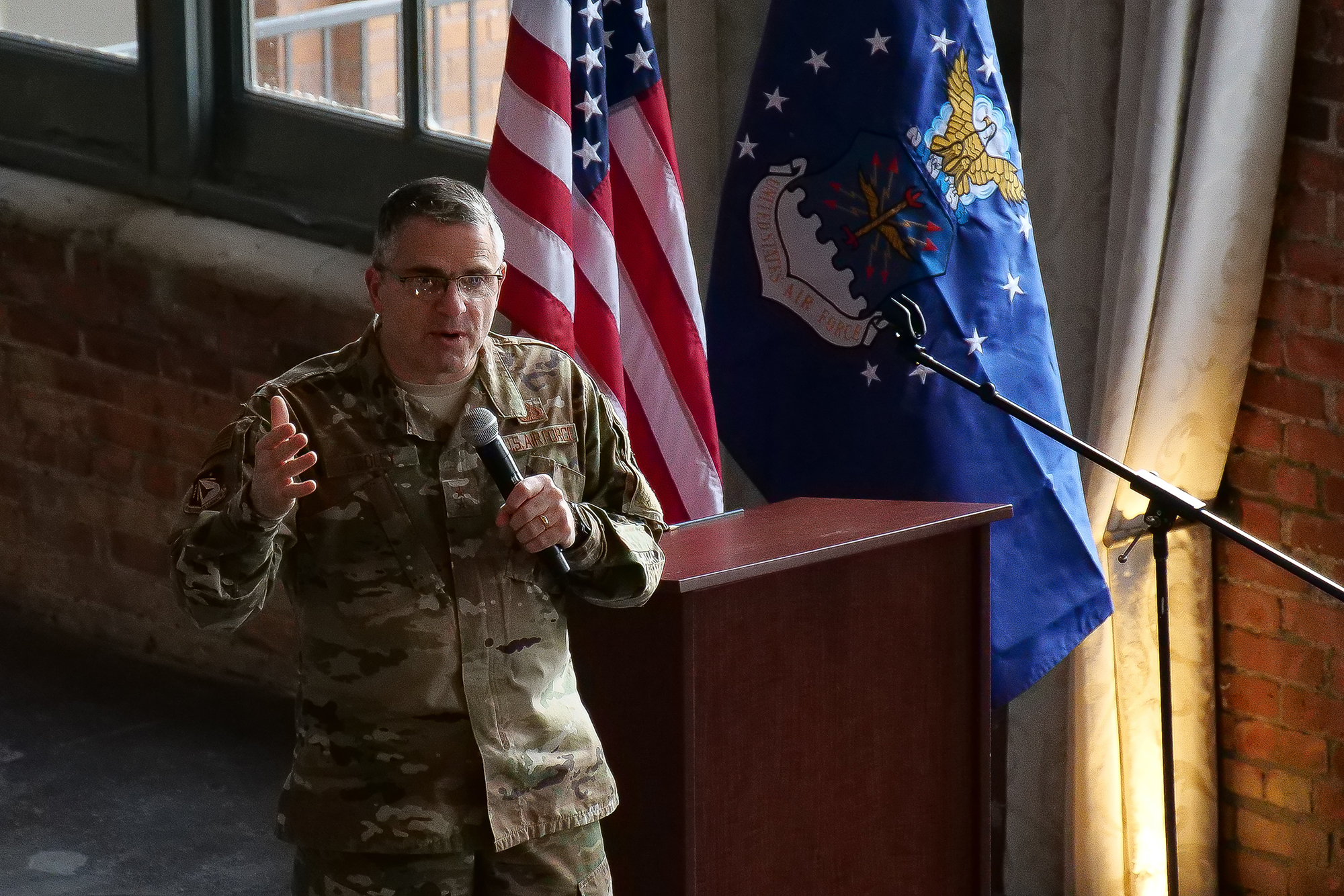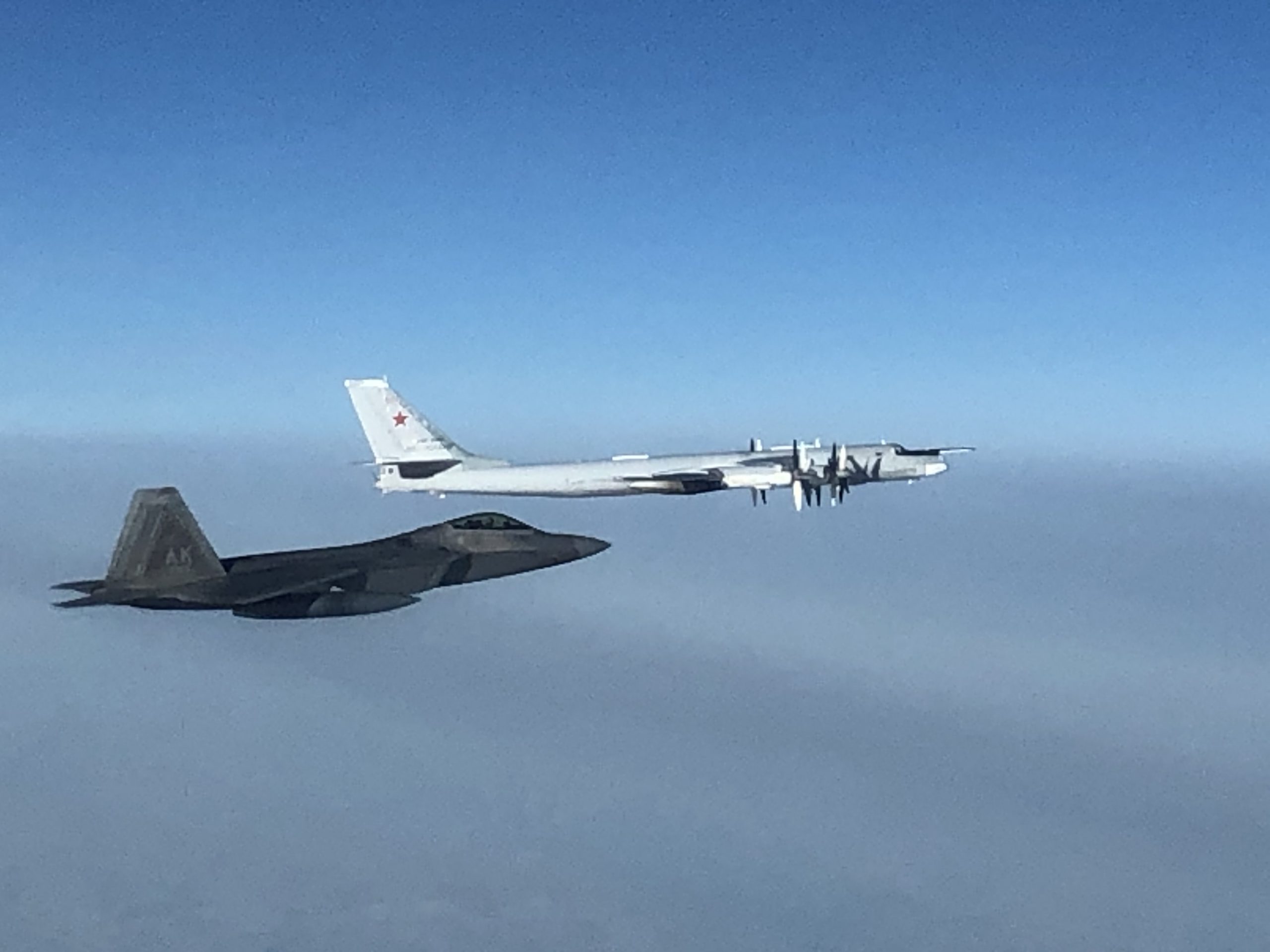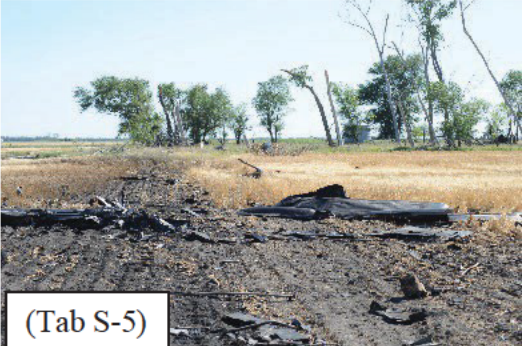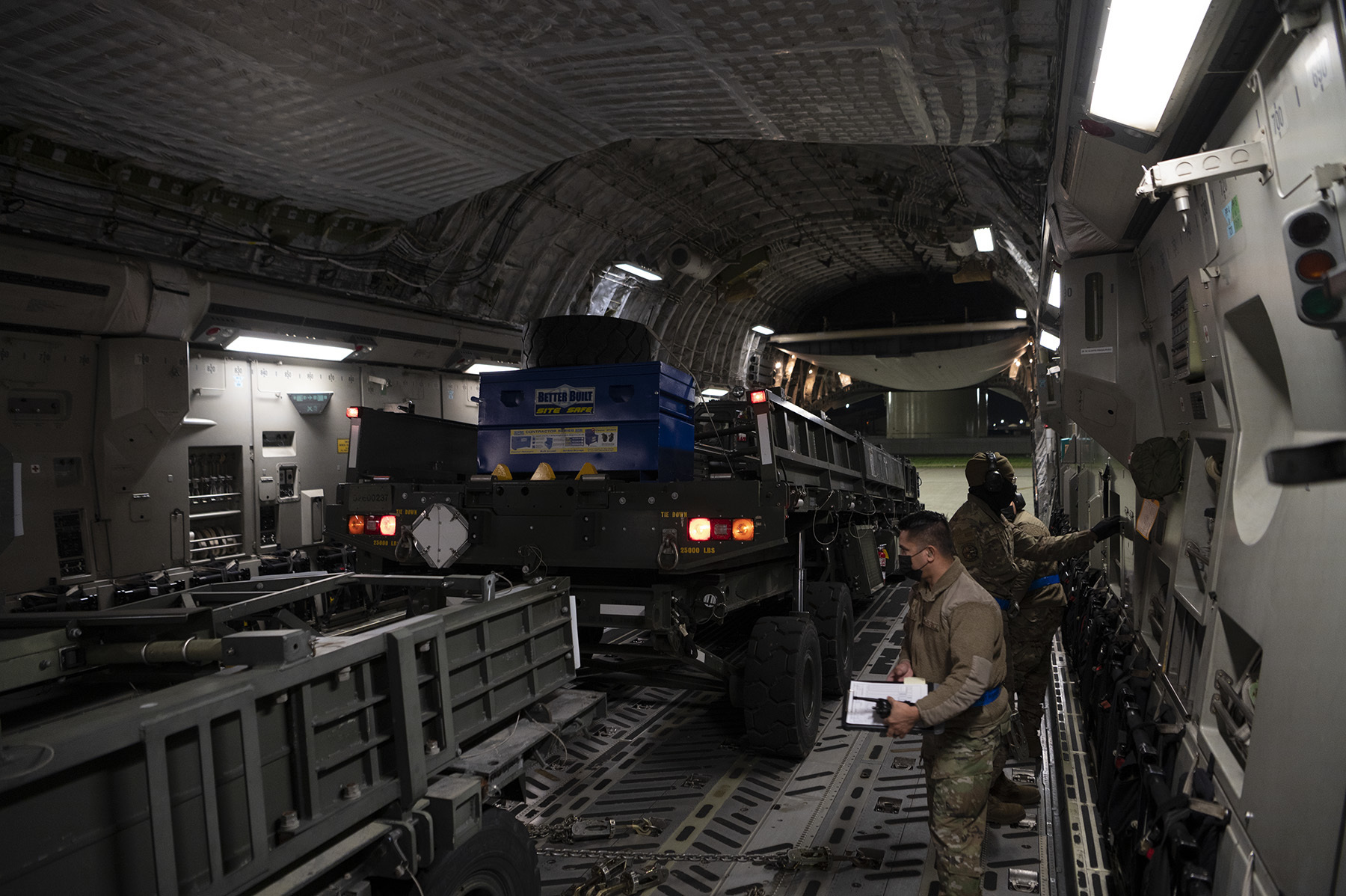The Air Force will buy some Boeing E-7A Wedgetails to replace a portion of its aging E-3 Sentry fleet, the service announced after evaluating two prototypes.
The Air Force “has decided to replace a portion” of the E-3 Airborne Warning and Control System (AWACS) fleet with the E-7, the service said April 26, without disclosing how many it expects to procure. In its fiscal 2023 budget request, the Air Force asked Congress to let it retire 15 of its 31 Sentry aircraft, but a service spokesperson said not to assume those aircraft will be replaced on a one-for-one basis.
“That will be determined after the evaluation,” she said.
The fiscal 2023 budget proposal also included a request for $227 million in research, development, test, and evaluation for a “rapid prototype” example of the E-7, which, despite the description, will not be delivered until 2027. A second prototype will be requested in the fiscal 2024 budget, the service said—with a delivery date not disclosed. A “production decision” is to be made in fiscal 2025, well before the prototypes are even delivered.
The service said the savings obtained by divesting the E-3s will pay for acquiring their replacement.
“The E-7 system was developed by Australia for the Australian Defence Forces,” the Air Force said. “The unbreakable U.S. and Australia alliance and interoperability amongst the armed services enabled the Department of the Air Force to leverage this considerable investment and exceptional capability.”
The E-7 is “the only platform capable of meeting the requirements for the Defense Department’s tactical battle management, command and control, and moving target indication capabilities within the timeframe needed to replace the E-3,” the service said.
Air Force officials have previously said the Northrop Grumman E-2C Hawkeye and the Saab Erieye, both turboprop-powered AWACS-type aircraft, lack the speed, altitude, and capability USAF needs for the mission.
Senior USAF leaders have expressed their interest in the E-7 for several years. Last October, Gen. Mark D. Kelly, head of Air Combat Command, said he wanted them in the inventory “two years ago.” Complimentary comments have been offered by Chief of Staff Gen. Charles Q. Brown Jr. and Pacific Air Forces commander Gen. Kenneth S. Wilsbach.
Due to its age, obsolete engines, and diminishing vendors, sustaining the E-3 fleet has become a “Herculean effort,” Kelly said, with mission capable rates dipping near 50 percent on “a 45-year-old airframe.”
Last October, the Air Force said it was entering a contract with Boeing to evaluate how the E-7, which was designed and optimized for the Royal Australian Air Force, could be adapted for USAF use.
Unlike the E-3, which uses an iconic rotating radome mounted ahead of its vertical tail, the Wedgetail uses an Active Electronically Scanned Array radar mounted in a blade-like structure on the back of a 737 airframe. Because it is digital, the blade antenna has a faster revisit time than the mechanical radome, which has some latency. It also requires less maintenance. The gaps at either end of the blade are filled in by sensors in an overhanging lip, called the “Top Hat.”
Australia, South Korea, Turkey, and the U.K. either have or plan to sign up to buy the E-7, but it would require different equipment and a different architecture to be compatible with USAF systems. Boeing has said it will supply an “open architecture” version of the E-7 to USAF, which would allow other companies to supply systems for the aircraft, but the existing version does not have this capability.
